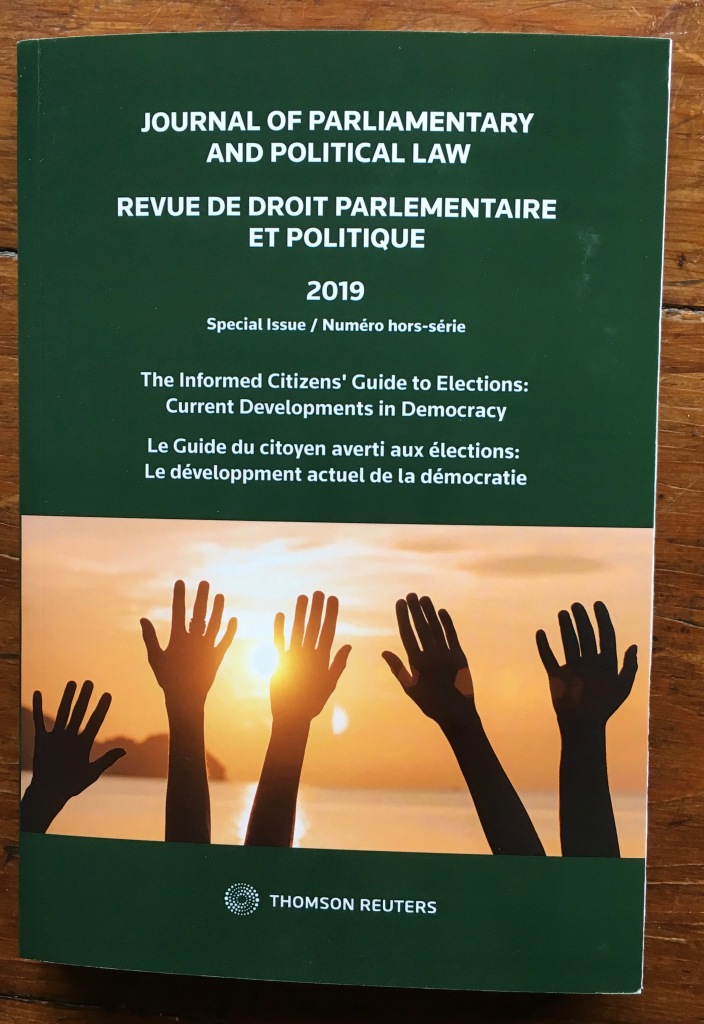New Article: Responding to Online Disinformation and Harmful Speech in Elections
I’m happy to be one of the contributors to The Informed Citizen’s Guide to Elections: Current Developments in Democracy, a very timely issue of the Journal of Parliamentary and Political Law. I can’t wait to dig into chapters from the chief electoral officers for Canada, British Columbia, New Brunswick and Ontario; from leading academics in Canadian electoral law and politics, such as Mike Pal and Elizabeth Dubois of the University of Ottawa and Colin Bennett atC the University of Victoria; and from some newer voices in this area, like Brian Budd and Anna Reepschlager.

My UBC colleague Heidi Tworek and I wrote a chapter on policy responses to online disinformation and harmful speech in elections. We clarify the risks that disinformation and harmful speech pose to political participation, and examine the current regulatory context in Canada to address them. We propose some policies that would enable the Canadian government, social media platforms and journalism organizations to better understand and reduce the threats to democracy posed by disinformation and harmful speech. These are partly drawn from policies that other countries are pursuing. We call for a three-pronged policy framework: 1) greater enforcement of existing laws, 2) regulation to encourage and help social media platforms address abuses; and 3) improved civil society measures, especially by journalism organizations.
Of course, this chapter was written long before the current election campaign begins. I look forward to a future edited collection, which assesses how Canada’s electoral framework held up to the test in 2019.
Comments are closed.